How to Make Google Knowledge Graph Work for You
Google’s search engine result pages (SERPs) have evolved quite a bit in recent years. These days, the emphasis is no longer solidly placed on achieving top organic rankings. One of the most important updates reflected on the Google SERP is the Knowledge Graph.
Any Internet marketer worth his salt would be familiar with the significance of the Google Knowledge Graph. It is basically the search engine’s way of providing quick, straightforward answers to questions. It is so much more than that, however. While crafted to provide a great service for consumers, it also works to aid businesses. Marketers definitely see it as a tremendous opportunity for making discoverability easier.
You may not be aware of it, but you see evidence of the Knowledge Graph on the searches you do on Google. If you type in the name of a famous person, for instance, the upper portion of the SERP will yield a brief bio, some images, and other related informative details. All those instant data are definitely convenient for Google users, but how does the system benefit your business?
If the Knowledge Graph has your most pertinent details, does it not serve your business well to be immediately found on Google and get such a loud introduction? It certainly helps your marketing efforts to have so much information on your business easily accessible.
Unfortunately, there is not on an official way for you to directly submit information to Google to feed into the Knowledge Graph. Nonetheless, this does not mean that you have no choice but to leave everything up to chance. Most certainly, there are steps you can take to ensure that Google does not miss out on information about your brand and that these data actually show up on the SERP when someone Googles your brand.
What are these tried and tested measures? To influence what the Knowledge Graph will produce on your search result page, you can:
- Tap the primary sources of information used by Google to populate the Knowledge Graph: Wikipedia, Wikidata.org, and the CIA World Factbook.
- Leverage structured data through Schema.org, OpenGraph, Microformats, etc.
- Optimize Google+, Google Maps, and Google Freebase listing.
- Set up a YouTube channel.
Thus far, not all businesses have thought to utilize the power of the Google Knowledge Graph just yet. You can definitely gain an advantage by doing it now. Your business will stand out among the competition and position itself as a strong brand.





















